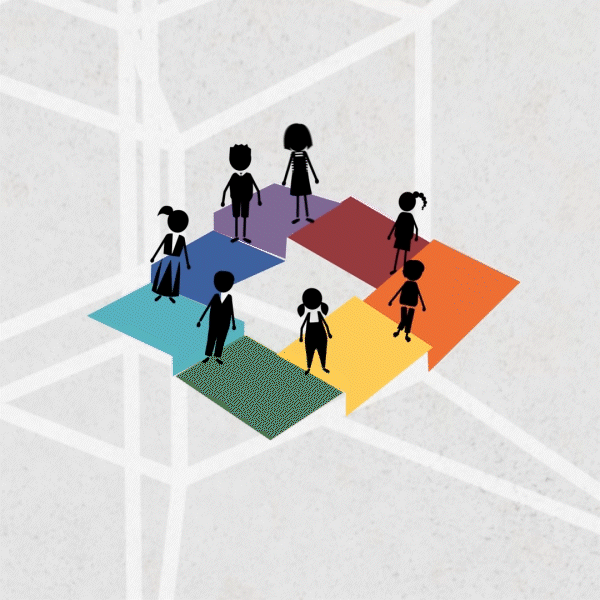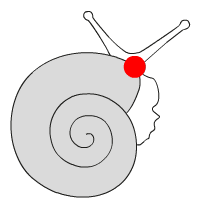
CONTENTS
"I am extremely grateful to Karen Shook, first editor of this work, for her meticulous attention to detail, her deep sympathy for the concept, and keeping a caring eye on it through to the end. I am also in the debt of Rowland Atkinson, Jane Betty, Millie Bysh, Frances Darlington-Pollock, Alison Dorling, David Dorling, Solomon Dorling, Stacy Hewitt, Leo Hollis, Bill Kerry, Mary O’Hara, David Partridge, Kirsten McClure, Alice Miles, Johnna Montgomerie, Catherine Morgan, Katie Nudd, Tola Ositelu, Helen Rowe, Katy Stones, Sally Tomlinson and David Welsh, who all kindly read and commented on earlier drafts. I am grateful to Fiona Colley and Andy Bates for information on homelessness and children, Haroon Chowdry for pointing me to contemporary estimates of numbers of children with parents in prison, and to Alison Howson and many other editors from other publishers, who helped encourage the project along greatly in its early years. Lara Weisweiller-Wu kindly took it on, reorganised the story yet again and reduced its verbiage, and did so with verve, insight and kindness. There are very few books written as part fiction and part non-fiction. Having finally finished this one, at least in draft, I now understand why. But now it has to go into the world, so thank you for reading this and putting up with my attempt to try a different way of telling a story of our times, one that I have told in far less emotive terms many times before. Thank you also to Rose Bell, who copyedited this book, Niamh Drennan and Daisy Leitch who saw it through to final production, and to Raminta Uselytė, for all her work in publicising it."
Introduction
1. Anna – Monday’s child
2. Brandon – Tuesday’s child
3. Candice – Wednesday’s child
4. David – Thursday’s child
5. Emily – Friday’s child
6. Freddy – Saturday’s child
7. Gemma – Sunday’s child
Conclusion
Appendix: Where our seven children came from
Notes
Index
QUOTES

"The future for Britain’s children does not depend primarily on their own actions. It depends on you. What happens depends on whether you are willing to tolerate the high human cost of our increasingly unequal British nations; if you are not but choose to stay silent; or if you believe it is time to speak out."

Anna – page 41
"The tearing apart of British society from the 1970s was a huge and terrible shock, like fabric being ripped apart; but it is how that tear has been left gaping that is the very worst thing. High inequality was bad, very bad; but high and sustained inequality is so much worse. This is what families in Britain have been experiencing in the twenty-first century."

Brandon – page 55 and 56/7
"Few people know that the number of financial penalties, the ‘sanctions’, that have been imposed on benefit claimants by the Department for Work and Pensions, now exceeds the number of fines imposed by the magistrates’ courts for all crimes of any kind committed in England and Wales and those imposed by sheriff courts in Scotland. … The vindictive laws applied here were made in 1998 under New Labour, and then further tightened under the Conservative–Liberal Democrat coalition government of 2010–15. So, all three political parties are culpable."

Candice – page 86
"In a divided society, it is more common not to trust other people. It is more common for people to think of themselves as concerned, sensible, logical, fair and decent and hard-working and trustworthy, but that many other people are less so. You are encouraged to tell yourself that what you have achieved is what you have worked hard for, and what you do not have is partly what you did not strive hard enough to get and partly the result of others cheating you or holding you back."

David – page 105/6
"Insecurity and precarity will only stop rising when income inequality begins to fall; but who knows when or how that will happen? The only thing that’s certain is that for everyone depending on an insecure income to keep a family afloat, it can be terrifying. For parents of young children, such fear is the last thing they need."

Emily – page 117/8
"Try to be hopeful. It is unlikely that the UK will manage to carry on being the country with the most extreme income inequality in Europe, other than occasionally Bulgaria. After all, since recent UK governments have taxed the population so modestly, and especially the richest of all, future governments could reverse austerity cuts and increase public spending (and decency) without looking at all out of line with other rich countries."

Freddy – page 144
"For a few people to be successfully greedy, many other people, an increasing number of others, have to be poor. Their relative poverty is the incentive for them to take on debt and to do all the work that employers want to delegate to them."

Gemma – page 168/9
"In the past the extremely wealthy were far rarer—and so there were also far fewer losers, and far more people who managed happily without either winning or losing. And so, in a way, everyone was more of a winner back once upon a time. Even the people who lost out back then, did not lose out by so much. Most importantly, almost all of those who were economic winners only won by a little. They were well off, rather than mega-rich, and so the immiseration of so many at the bottom was not necessary to ensure their enrichment."
-
ADDITIONAL NOTES
Open or CloseNot everything can be included in a book, even one where reference and notes make up a third of the book. For example, readers may be surprised (when they look at page 56) about the severity of the cuts to services provided by the Citizens Advice charity network. These cuts began after the financial crisis of 2008. By 2011:
“National charity Citizens Advice today published the first evidence that the impact of substantial cuts to bureau funding across the country is leaving thousands of people with nowhere to turn for help with resolving urgent and serious problems.
“In the first four months of this financial year (1 April – 31 July 2011) Citizens Advice Bureaux in England and Wales recorded a seven per cent drop in the total number of people they were able to help (779,000) compared with the same period last year. Cuts to bureau funding averaging 10% took effect from April.” Source: https://www.citizensadvice.org.uk/cymraeg/amdanom-ni/about-us1/media/press-releases/cuts-in-cab-funding-leaving-thousands-with-nowhere-to-turn-for-help/
In 2024, some Citizens Advice centres have lost all their funding.
“A charity has begun crowdfunding in order to continue operating due to council budget cuts. Citizens Advice Woking (CAW) said there would be a ‘significant reduction’ in services it can provide due to cuts by Woking Borough Council (WBC) from 1 April. … CAW has been providing local clients with free, impartial and confidential advice for more than 80 years.
“In the past 12 months, the charity has helped more than 7,000 clients – 10 per cent of the adult population in Woking. … [but now CAW has] lost a grant of £189,000 for the year. … The charity has set a crowdfunding target of £100,000.” Source: https://www.bbc.co.uk/news/articles/c9
Other reports with recent data on the lives of children in the UK were released after Seven Children went to press. For example, this one by the Institute of Fiscal Studies on 19 June 2024:
“How well – or badly – has the UK fared on the 12 levelling up missions? We examine early progress and the scale of the challenge ahead. … Overall, progress towards levelling up has been glacial – and, on many metrics, the UK as a whole has gone into reverse. The share of pupils in England meeting the expected standards at the end of primary school has fallen from 65% in 2018–19 to 60% in June 2023. The total number of further education and skills courses completed fell by 14%, driven by a more than 20% fall in the lowest-skilled areas. Outside of the pandemic years, average life satisfaction is the lowest it has been since 2012. There is a 21-percentage-point gap in the average employment rate between the best- and worst-performing tenth of local authorities – the widest it has been since at least 2005.” Source: https://ifs.org.uk/publications/how-do-last-five-years-measure-levelling?mc_cid=5e0e554236&mc_eid=fb0530377c




